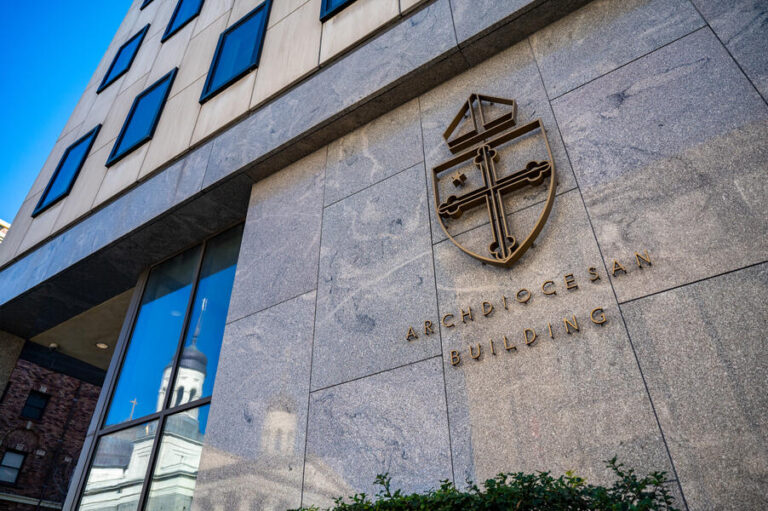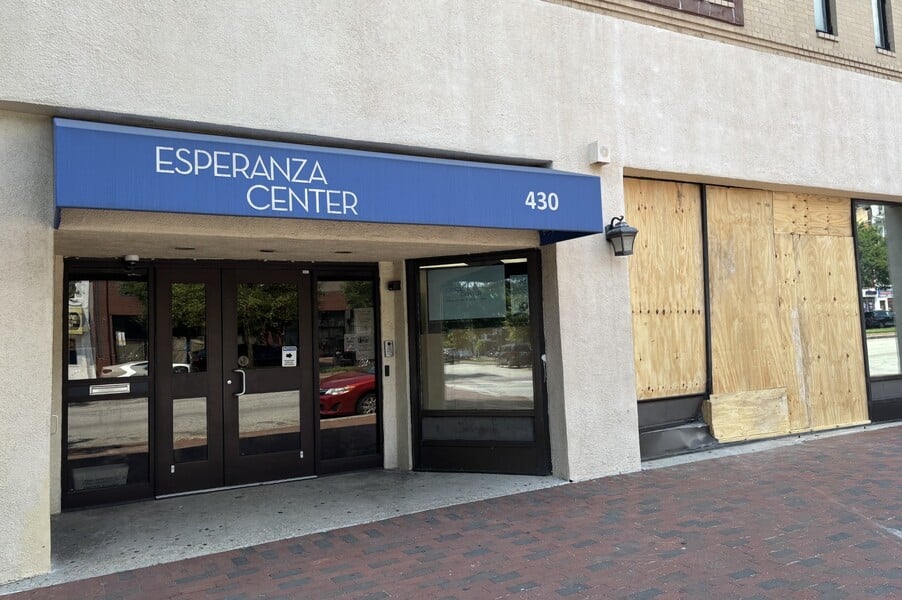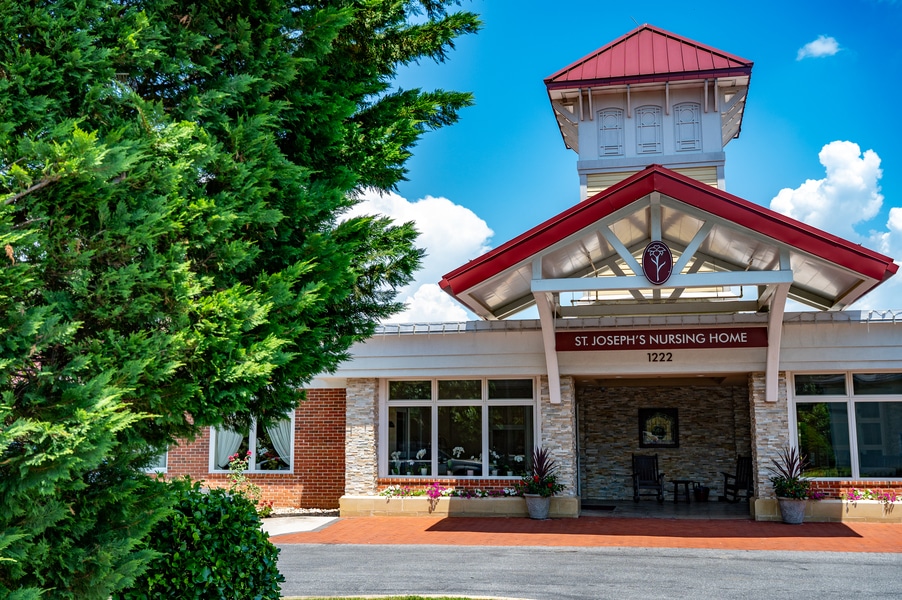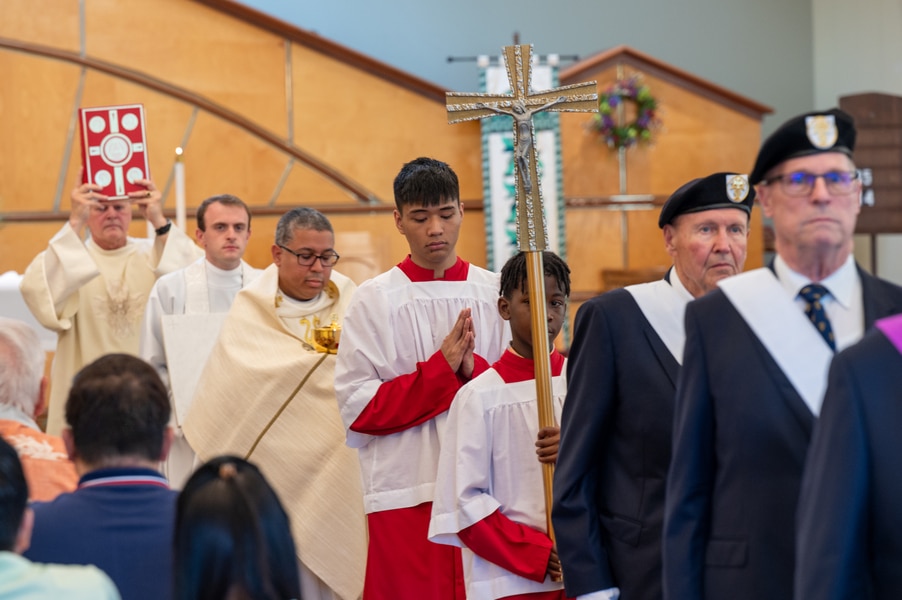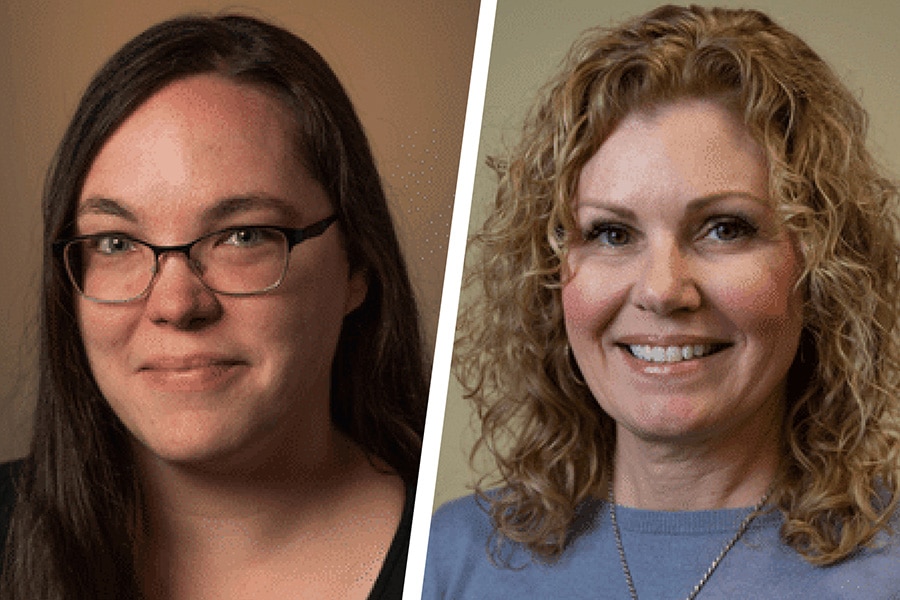The Archdiocese of Baltimore filed for Chapter 11 bankruptcy reorganization Sept. 29, in response to the new law that goes into effect on Oct. 1. The new law allows civil suits for child sexual abuse against public entities and private institutions and individuals, no matter when the abuse occurred.
The Child Victims Act, passed by the Maryland General Assembly in the spring of 2023, permanently and retroactively eliminates time limits on civil claims for historic cases of child sexual abuse.
The new law pertains to suits for monetary damages; there is no statute of limitations for criminal prosecution of such crimes in Maryland.
In an interview with Catholic Review Media, Archbishop William E. Lori explained that reorganization would help provide equitable settlements to all those who may have been harmed.
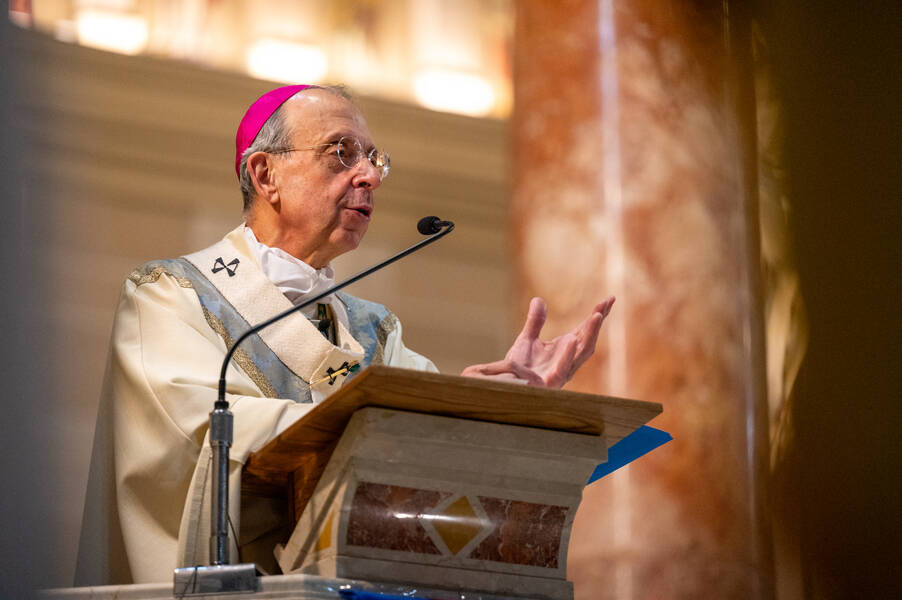
“I don’t think we can begin without recognizing the harm that was done to so many victim-survivors and the ongoing challenges that they face as the result of having been abused sexually as children and young people. Conscious of that, I have two goals in mind,” he said.
He said his second priority was to ensure that the church is able to sustain the ministries of the archdiocese and its parishes, schools and charities. “The church, in spite of its past failings and present challenges, does untold good, not only for its members, but for the community at large.”
He said the archdiocese anticipated “many lawsuits” after the law goes into effect. “If we try to litigate them individually, the first few victim-survivors who come forward will get the majority of the assets and there won’t be anything else left for anybody else,” he said.
The archbishop said that since the new law does not provide a defined period of time or “lookback window” for victim-survivors to file suits, as many other states have done, the archdiocese could have faced many years of liability for anything that happened over the course of the last 80 years. The Chapter 11 reorganization process creates a one-time window for victims of past cases of abuse to file a claim and participate in the settlement process. Once that process is complete, no future lawsuits or claims will be allowed in historic cases of abuse.
“The sooner we enter into this process, the sooner we will be able to bring about the two goals of equitably compensating victim-survivors while at the same time sustaining our ministries,” Archbishop Lori said.
The archbishop differentiated Chapter 11 reorganization from Chapter 7, which requires liquidating assets, selling off everything, closing the doors, going out of business and distributing assets.
In a Chapter 11 reorganization, the federal code provides a way for entities to continue normal operations while assessing how to compensate creditors. Once the court gives the appropriate approvals, any cases or lawsuits against the archdiocese would be stayed. The bankruptcy court will likely set what is called a “bar date,” by which time anyone who has a claim must file a notification.
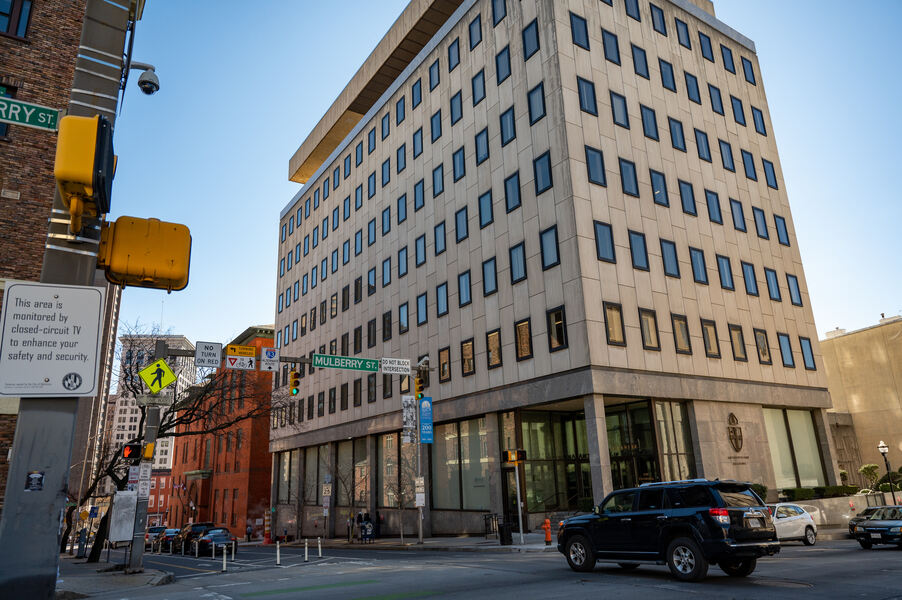
According to Marie T. Reilly, a bankruptcy law expert and professor at Penn State Law at Penn State University, “Everybody who has a claim or might have asserted a claim as of the date of the filing of the petition is treated as a creditor in this bankruptcy case, and they’re all represented by an unsecured creditors committee. And the unsecured creditors committee owes a fiduciary responsibility to the whole group of them.”
Archbishop Lori noted that the committee importantly includes victim-survivors.
In the meantime, the archbishop said, the archdiocese, its parishes and schools and charitable efforts would continue.
“The funds that are dedicated to our ministries will continue to be used for our ministries, and that would include what people contribute in the (parish offertory) collection, the Annual Appeal for Catholic Ministries and to other very specific kinds of ministries,” he said.
The goal is to continue the church’s ministry “while equitably compensating those who have been harmed.”
Since the early 1980s, the archdiocese has paid more than $13.2 million to 301 victim-survivors for counseling and direct payments.
Since 2007, the archdiocese has also offered a financial mediation program overseen by a non-Catholic judge for survivors upon their request for monetary compensation in lieu of counseling, resulting in 105 settlements for a total of $6.8 million.
He acknowledged that compensation itself does not heal, and that he has learned clearly from heart-rending conversations with victim-survivors over the years that “healing is a long, difficult process and sometimes it doesn’t happen. But this does provide opportunities for those who come forward to receive assistance that they could use according to the way they see best, but perhaps also to bring about healing, taking the appropriate steps.”
The archbishop added that he hopes “at the end of the process, it will prove beneficial for all involved, and that a reorganized archdiocese will emerge, not only organizationally but spiritually renewed.
The archbishop said he consulted widely with clergy and laity in the archdiocese, as well as with bishops from some of the 32 other dioceses that have gone through the same process.
“Facing the reality of child sexual abuse is extraordinarily difficult on so many levels – first, because of the harm inflicted on so many innocent persons and second because of the challenge of sustaining the church’s ministries,” Archbishop Lori said,
Archbishop Lori noted there is no perfect solution.
“I prayed about this, and I discerned, and I anguished. Who wouldn’t? But at the end of the day, it seemed to me that this was the right way to go and once I reached the decision – while I know there are difficult days ahead – it did seem to me that this was the best decision that could be made under the circumstances.”
The most recent ruling from the Baltimore Circuit Court regarding the Maryland Attorney General’s report on clergy sexual abuse in the archdiocese since the 1940s noted, “The fact remains that the large majority of the conduct described in the report took place prior to the year 2003.”
The AG’s report charted the incidents of abuse in the report, noting that most of the 600 incidents alleged occurred in the 1960s through 1980s, falling precipitously after that.
Archbishop Lori said the Archdiocese of Baltimore began implementing policies and an Independent Review Board in the 1990s, even before they were mandated by the Charter for the Protection of Children and Young People, adopted by the U.S. bishops in Dallas in 2002. Over four decades, there have been conscious decisions on the part of church leaders to reform the handling and reporting of allegations of sexual abuse against minors within the church.
Archbishop Lori was on the committee that drafted the Charter and took it to Rome for approval.
“As a member of the drafting committee, I learned that the policies and procedures in the Charter are based on good practices that were already in place in dioceses like our Baltimore,” he said.
The archbishop said long before his arrival in the archdiocese in 2012, a tremendous amount of work had already been done, including implementing zero-tolerance policies and reporting all allegations to law enforcement, including the attorney general. Policies and procedures also include strict background checks for thousands of clergy, employees and any volunteers who work with children. “If anybody is in a ministry or a volunteer in a parish, then you’ve brushed up against these policies because you’ve been required to do the background checks and the training,” he said.
“With God’s help and the help of many very qualified persons, the archdiocese is doing everything humanly possible to ensure the protection of children and young people. …
“These incidents peaked in the ’70s and ’80s and have gone down ever since and have really become a very, very small number. But one is too many,” he said.
“Even if our policies have, God willing, proven to be effective, the effects linger on in the lives of too many, far too many. And we have no laurels on which to rest. The protection of children and young people requires continued vigilance and continued strengthening and improvement of policies.”
He said the Independent Review Board – a mostly lay group with requisite expertise that advises him and archdiocesan leadership on policies, procedures and review of specific cases and allegations – helps make sure the archdiocese “always does the right thing and always has the policies that reflect best practices in place.”
Archbishop Lori added, “With God’s grace and with the help of many good-hearted qualified people, we’re doing our level best to eradicate this permanently from the life of our church, from our clergy, and from anybody else who ministers in the name of the church.”
The archbishop said he often revisits the conversations he has had with victim-survivors, which continue to instill in him “motivation to be vigilant. And they prompt in me renewed commitment to ensuring this doesn’t happen to anybody else again.”
The archdiocese will use unrestricted assets and insurance coverage for settlements and legal costs, according to Christian Kendzierski, executive director of communications for the archdiocese.
The archbishop also said it is important for people to continue their support of ministries, especially in their parish or school. The offertory collection is critical for the support of the parish, enabling a pastor to pay his staff, pay utilities, provide liturgical music and sustain charitable ministries at the local level.
“Our parishes are unheralded engines of charity and mercy, and that’s certainly true of our urban parishes that are in some of Baltimore’s most underserved neighborhoods,” Archbishop Lori said, citing food pantries, day care and other services. Poverty in other areas, including Mountain Maryland, is different, “but no less real.” Even affluent parishes, which often support parishes that have fewer resources, also help people in hardship in their own areas. The same is true of Annual Appeal for Catholic Ministries.
“It’s not simply to balance the budget that I’m talking about this,” he said. “I’m talking about sustaining person-to-person ministries and not creating more people who are harmed as fallout from what should have never, ever, ever happened.”
As the archdiocese enters Chapter 11, the archbishop also said this is not just a legal and organizational question, but a spiritual crossroads. “This is a moment when we will experience in a way we’ve never experienced before the death and resurrection of Jesus Christ – a dying and a rising.”
The archbishop said sharing in the redemptive sufferings of Christ means walking with compassion, suffering with those who have been harmed. “I think the Lord is calling us to do this with hearts and minds and spirits that are renewed,” he said.
Read More Local News
Copyright © 2023 Catholic Review Media

